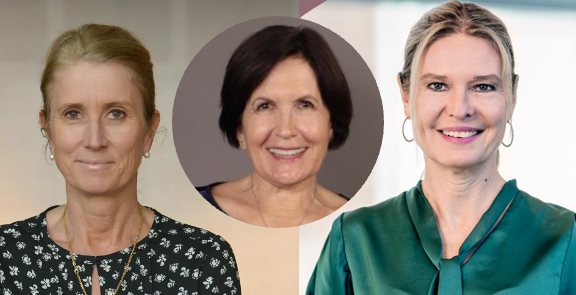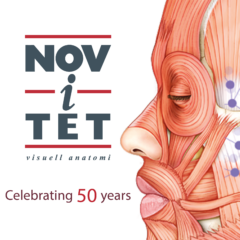Triss i proffs till SmartCellas styrelse
Senior life science and medical specialists to join SmartCella’s Board of Directors
SmartCella Holding AB (“SmartCella”) held its 2024 Annual General Meeting on June 10. The company welcomed investors to its state-of-the art clinical GMP manufacturing facility in Stockholm to learn more about the progress of SmartCella during the last 12 months. In addition, the investors met and interacted with the new board members who all hold unique life science industry and medical expertise. The newly appointed Board of Directors will play a pivotal role as SmartCella embarks on its next strategic development phase.
SmartCella is an innovative biotechnology company with a vision to combine novel delivery platforms, such as the FDA-declared Extroducer, with developing cutting-edge cell and mRNA therapies. The team consists of global scientists, innovators and visionaries dedicated to shape the future of targeted medicine through innovation and solid clinical data with the ambition of making targeted medicine a reality to many.
At the Annual General Meeting, Anna Martling (Professor of Surgery and Scientific Director Life Science at Karolinska Institutet), Claude Dartiguelongue (previously senior roles with Lonza, Thermo Fisher Scientific and Becton Dickinson and Company), and Regina Fritsche-Danielson (PhD in Cardiovascular Physiology/Pharmacology and Senior Vice President and Global Head of Research and Early Development, Cardiovascular, Renal and Metabolic Diseases at AstraZeneca) were appointed new members of the SmartCella Board of Directors. Magnus Tornling, Partner and Global Head of Equity Capital Markets at private equity firm EQT, and Christian Kinch, founder and Chairperson, were re-elected. Thomas von Koch declined re-election.

Anna Martling (Professor of Surgery and Scientific Director Life Science at Karolinska Institutet), Claude Dartiguelongue (previously senior roles with Lonza, Thermo Fisher Scientific and Becton Dickinson and Company), and Regina Fritsche-Danielson (PhD in Cardiovascular Physiology/Pharmacology and Senior Vice President and Global Head of Research and Early Development, Cardiovascular, Renal and Metabolic Diseases at AstraZeneca)
Christian Kinch, Chairperson of SmartCella comments: “We founded SmartCella in 2014 and have since invested in science, clinical data, team development, and infrastructure. As we advance on our strategic journey, our new board members will bring immense value with their diverse backgrounds in academia, science, and the commercial aspects of global MedTech and life science companies. It is a testament to our strength that we can attract such high-caliber individuals to the Board, whose skills complement SmartCella’s strong in-house team. I am excited and humbled by the potential of our collaboration and the impact SmartCella can have in addressing global health challenges, such as cardiovascular diseases and cancer. Our goal is to bring the magic behind medical science to transform lives, and I could not have a better Board of Directors to help achieve this vision.” He continues: “I would like to extend my appreciation to Thomas von Koch for his dedication and support over the past ten years. His philosophy of future-proofing companies has significantly contributed to SmartCella’s development. We look forward to continuing our collaboration with Thomas as an advisor and anchor investor.”
Niklas Prager, CEO of SmartCella, says: “With a track record of exceeding our strategic commitments, I am delighted to continue developing SmartCella and collaborating closely with all the Board members. The SmartCella Board now encompasses comprehensive expertise across all relevant domains, including equity capital markets, biotechnology, life sciences, MedTech, as well as medical, clinical, and research. I believe this breadth of knowledge is truly unique and essential to SmartCella. For us, a solid scientific foundation is crucial, and we rely on evidence-based science rather than speculative scenarios with limited substance. We are well-positioned to significantly disrupt disease treatment and make cutting-edge therapies safely accessible to a wide range of patients in a not too distant future.”





